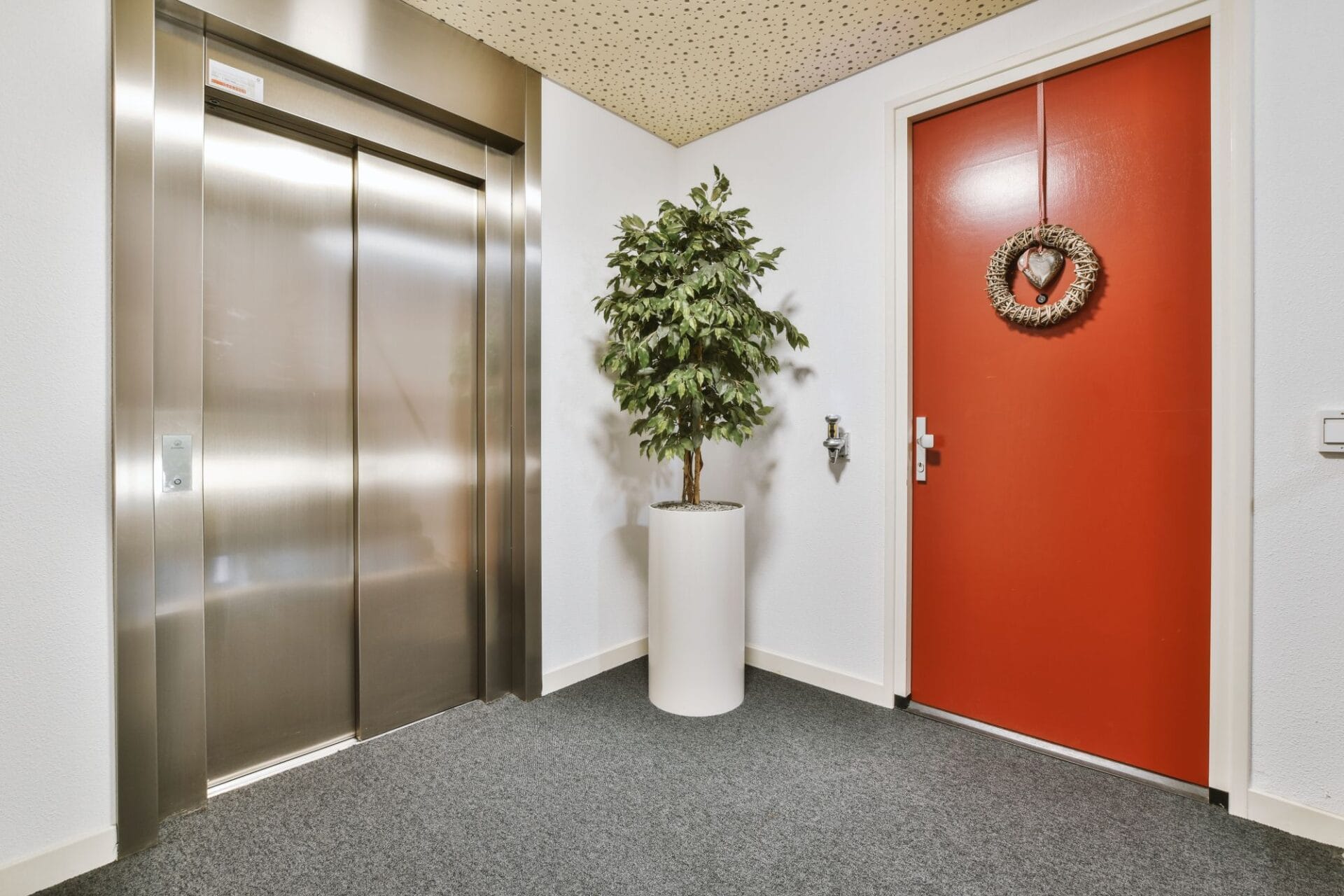While conflict may be inevitable, finding a resolution should be made as easy as possible. Homeowner Associations (HOA) know only too well the many challenges that arise when people from all walks of life live together in one community.
Disagreements can stem from any number of things from personal values and opinions to cultural differences among residents and everything in between. This leaves HOAs spending too much time on conflict resolution and struggling to improve the resident experience.
So, how can HOA’s find the solutions needed with such an array of challenges?
The good news is there are some best practices that can be applied.
First let’s dive a little deeper into conflict resolution and how HOAs are involved.
Table of contents
- What Is HOA Conflict Resolution?
- Why HOA Intervention Is Important in Residential Communities
- Understanding Common HOA Conflicts
- Top 8 Tips to Handle HOA Conflict and Achieve Resolution
- Applying Alternative Dispute Resolution (ADR) Techniques
- Mediation vs Arbitration
- HOA Conflict Resolution Made Possible
What Is HOA Conflict Resolution?
HOA conflict resolution is when the governing board of the HOA gets involved to address and provide a solution to a dispute related to HOA rules, policies and decisions.
HOA conflict resolution involves processes with the goal of delivering fair and agreeable solutions that maintain community harmony.
In 2022, the U.S. Census Bureau claimed approximately 84% of new, single-family homes are part of homeowners associations. This translates to their increased involvement in conflict disputes as well.
Why HOA Intervention Is Important in Residential Communities
HOA intervention is important to help manage residential community by helping:
- Residents have a voice in the community, who otherwise may not.
- Issues get addressed in a timely manner.
- Prevent problems from getting out of hand.
Provide clear guidelines for dispute resolution, including mediation and arbitration processes.
These aspects are key to maintaining a productive community.
Additionally, HOA intervention is important because efficient conflict resolution is vital for maintaining:
- property values
- community togetherness
- resident satisfaction.
Now, let’s look at some of more frequently experienced conflict situations where HOA gets involved.
Understanding Common HOA Conflicts
As noted, there are many kinds of conflicts that can arise, but here are some that often require HOA assistance. They include:
1. Boundary Issus
HOA’s tackle land boundary issues pertaining to property lines. Sometimes residents don’t understand where common or shared property is, or where the property line is between themselves and their neighbors. So encroaching tree branches can become a hot topic!
2. Communication Breakdown
Not everyone interprets communication the same way. People often miss what was written or said or forget what communication took place around a particular topic. When this happens, it can lead to an unnecessary escalation of an issue or important information being overlooked.
Additionally, one way communication is very limiting and fails to provide feedback to HOA boards and to residents. When there is not enough effective two-way communication all parties become frustrated and HOA community management only becomes more difficult
3. Maintenance Responsibilities
Specific rules regarding who is responsible for different aspect of property management is critical because it can negatively impact property values if not well manged. If neighbors are made aware who is responsible for what it prevents duplication of effort and helps with expectations.
4. Noise Complaints
5. Pet-related Issues
Pets are faithful companions, but they can also be a source of aggravation for others in the community when they are not picked up after, are possibly dangerous, or have become a nuisance. This is when HOA needs may enforce a clearly defined pet policy.
The list can go on, but what’s most important is how to address these and other conflicts.
6. Parking Spots
Regulations around designated parking spots for residents and visitors are often transgressed because sometimes vehicles are too large, like pickup trucks, and can’t fit in the designated space so its parked in a shared laneways or on the road blocking sidewalks; and visitors think they are only going to be visiting for a short time, and don’t bother to use visitor parking they just park near a curb and “run in.”
The point is these parking violations occur frequently daily, taking up a lot of property management’s time and can cause obstructions to fire trucks, garbage removal, and school buses; creating safety issues for everyone in the community.
7. Smoking
Tabacco and other medicinal substances may be enjoyed by some residents, but the reality is that anything smoke-related is never contained to a single unit or residence—the smoke and smell encroaches into surrounding neighbor spaces. When it’s in the air, its unavoidable and is not only annoying, but can be a real health-hazard for residents and pets.
Depending what state your HOA is located though, court orders have been awarded to stop residents from smoking marijuana and more condo boards are banning smoking altogether.
8. Holiday Trinkets
Isn’t funny how the shimmer and glow of a holiday decoration is so appealing in December but becomes quite unattractive by April. Holiday decorations have their place and time. Not only do they become a bit unsightly after the season, but might also be a safety hazard, noisy or what some might consider in poor taste.
Because people have personal feelings around how they celebrate festive holidays it can become a touchy subject to manage, however HOAs have the responsibility of making sure the entire community has some level of uniformity, appropriateness and are kept safe.
9. Money Management
When it comes to managing community finances for residents, there will be disagreements on where funds should be allocated, how much should be spent, maintaining the reserve for the financial health of the HOA community, and ensuring transparency. Money matters can bring out the worst in some people, so HOAs must apply sound financial management.
10. Amenity Etiquette
The swimming pool, sauna, and workout gym are all very attractive selling features for HOA communities, however when neighbors don’t use them as they should or abuse them; the rest of the community suffers.
Damage brings down the property value and costs the HOA money for repairs, and people are turned off from using the amenities when others don’t behave as they should in these shared spaces.
Top 8 Tips to Handle HOA Conflict and Achieve Resolution

Understanding what the conflicts are is one thing, but how best to resolve them in another. Not every board member has experience handling HOA disputes. Remember, most boards are made up of homeowner volunteers with non-community management-related occupations.
Here are some winning actions any HOA can take to settle disputes peacefully.
1. Consult Governing Documents
Review your governing documents. A policy for internal dispute resolution is typically already in place in associations.
An orderly settlement process depends on having well-defined guidelines for resolving disputes. Board members can carry out the rules more efficiently when they are in writing, and owners are also more likely to follow the protocol.
It’s time to create your conflict resolution policy if you don’t already have one. It is advisable to have legal counsel involved.
2. Keep Communications Simple
Speaking in plain, uncomplicated language with board members and homeowners is crucial. Jargon will confuse and make things more difficult. So, keep it brief, so readers won’t get lost in a lengthy message.
Also, improve communications with multiple communication channels to raise the effectiveness of HOA communications by sending information and announcements through a variety of channels and keep track of all communications distributed.
You can implement communication tools such as:
Communication software
Send out time-sensitive messages quickly, keep track of communications, reduce print and paper costs and simplify daily interactions with residents.
Display screens
Digital display screens attract eyeballs. While it’s easy to gloss over a paper announcement in an elevator, with condo management software you can promptly change and update information as it happens.
Email
Most everyone has an email address and HOAs can use a professional email address that the whole boar has access to so all communication is considered professional correspondence as opposed to using a personal email address.
Online and print newsletters
If published regularly with useful information for residents, the readership will grow and residents will be informed and engaged.
Website
Make sure to put all current information on your landing page and update as often as possible. People tend not to click on too many pages of a website, so giving the most current information on the landing page will keep them in the loop. Face-to-face communication
An open-door policy is always valuable to residents. Written communication can miss the mark sometimes and residents in an HOA community want to feel like the can speak to someone when they need to.
3. Be Cooperative
Resolving conflicts requires teamwork. To resolve a conflict, all parties involved must be willing and cooperative. Board members should examine all relevant information to clear up misunderstandings and determine the main points of contention to settle conflicts amicably.
Active listening is something that board members should do during the debate. Never cut someone off when they’re speaking or presenting their argument. Don’t hesitate to ask questions in doubt—avoid phrasing them accusingly.
Also try involving community members in formulating policies to guarantee that rules are well-received and to encourage a shared feeling of accountability for community standards.
4. Be Neutral
When settling disputes, board members must always maintain their objectivity. Choosing a side and assigning blame will make the issue worse. HOAs as an impartial third party can address the problem and objectively consider all viewpoints. This will enable you to reach a just resolution.
Create an impartial hearing and appoint unbiased hearing officers or committees guarantees a fair and objective viewpoint, and allowing all parties to argue their case encourages openness and justice.
5. Seek Professional Assistance
If the Board of your homeowner association lacks conflict resolution training, don’t be afraid to turn to experts. The board can get assistance from a HOA manager during this procedure.
A competent manager can handle dispute resolution because they are consistently composed and professional. A lawyer can offer mediation or arbitration services if another kind of dispute resolution is necessary.
6. Follow Up
Reaching a decision is good, but not necessarily the end of the process. It’s better to follow up with action items and restate what the outcome was after the procedure.
Check-in periodically to ensure everything proceeds according to plan and everyone follows the agreement. After that, apply what you’ve learned to guide your future actions.
7. Document Everything
If a HOA disagreement ends up in court HOA boards should have accurate documentation such as a paper trail or record to refer to in this manner. This is so important when it comes to financial interactions. Plus, when you keep financial records, you need to make sure the information is secure and organized.
A locked cabinet in an office is not secure. It can be broken into. Technology on the other hand can help you can centralize and organize financials for easy retrieval and storage with high-level security.
For example, with paper copies in a cabinet anyone can pull open a drawer and flip through folders, looking at sensitive information, but with document storage space software, HOAs can set permissions for who can access and private information by giving access to specific individuals, HOA group, and even residents.
8. Be Preventive
As the adage goes, an ounce of preventions is better than a pound of cure. Its best to establish continuing community education initiatives to familiarize residents about laws, regulations, and peaceful resolution techniques in advance of conflicts arising. Of course, an HOA can’t foresee all future problems, but when they are aware of what has come up in the past they can reference those conflicts, create policies around them, share them with residents in the various communication channels and at events.
Applying Alternative Dispute Resolution (ADR) Techniques
When HOAs need to take extra steps to solve conflict they may make use of mediation or arbitration, otherwise known as ADR techniques to encourage residents to seek resolution, while avoiding more aggressive options like court case, and prove more economical than court procedures.
The following will help HOAs decide whether mediation or arbitration might be best for a particular situation.
Mediation vs Arbitration
Mediation and arbitration are two additional alternative conflict resolution techniques outside of HOA parameters.
Both mediation and arbitration involve a third party, however with mediation the ultimate decision or agreement is made between the parties who are in conflict. Arbitration on the other hand, allows the arbitrator to gather information and hears from each side during arbitration. After that, it is the arbitrator who decides on a final action to settle the conflict, and the parties in dispute must consent to follow the arbitrator’s ruling.
While its often a paid service that mediators and arbitrators provide, these approaches are less expensive than filing a lawsuit.
HOA Conflict Resolution Made Possible
Proactive and diversified approaches are necessary for effective HOA dispute resolution. All people can live in a flourishing and peaceful community if HOAs:
- Reference and adhere to its policies
- Elevate its level of communication
- Look for ways to work together with all parties in conflict
- Remain objective in the situation
- Ask for outside help when needed
- Recognize even when a resolution is reached, it requires following up to make sure the partie(s) are sticking to it.
- Keep all records and make sure they are secure
- Share policies in advance so residents are aware of what is expected in their HOA community.
HOAs can resolve conflicts with empathy, openness, and a dedication to preserving harmony that characterizes a successful home community. With a sustainable community living model cooperative dispute resolution, mutual respect, and understanding are possible.























